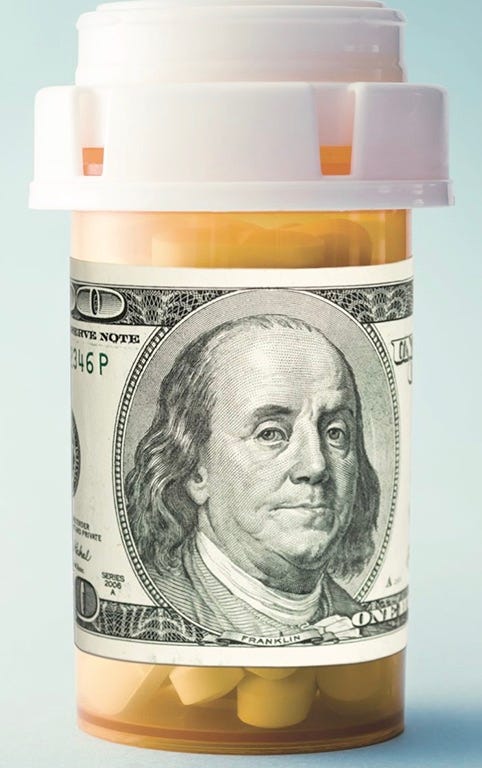Non-profits to boost unproven Alzheimer's drug
Expect "patient assistance" foundations to jump into the Aduhelm fray
(Sending again to correct headline. Please disregard earlier version. Sorry about that.)
Even as the backlash against paying exorbitant sums for an unproven Alzheimer’s drug gathers steam, Biogen, Aduhelm’s manufacturer, is moving to deploy “patient assistance” programs to help patients pay their co-pays and deductibles should Medicare or any insurance company decide to cover the drug.
Biogen’s new website touting the drug states the company is committed to helping patients get started and stay on the drug. “Our support coordinators are committed to … conducting benefit investigations to determine your insurance coverage, and assessing your eligibility for financial assistance,” the company says.
The program merits close scrutiny. Pharmaceutical industry-funded patient assistance programs have emerged as a major target of government investigators in recent years. Hopefully, the issue will come up at today’s public hearing at the Centers for Medicare and Medicaid Services, which is being held as part of its coverage determination process.
A year ago, the joint Health & Human Services-Justice Department task force on health care fraud and abuse forced Novartis Pharmaceuticals to pay $51.3 million to settle a suit claiming it illegally used three patient assistance foundations as “conduits to pay the co-payments of Medicare patients taking the Novartis drugs Gilenya and Afinitor.” The task force’s latest annual report also reported that last September, Gilead Sciences paid $97 million to settle claims it illegally used a non-profit foundation to offset co-pays for Letairis, a pulmonary arterial hypertension drug, “because Gilead knew that the price it set for Letairis could otherwise pose a barrier.”
The government task force cited a Citi Research report that found “each $1 million industry donation to a charitable foundation to enable Medicare patients’ access to high-priced drugs has the potential to generate up to $21 million for the sponsor company, funded by the U.S. government.”
The Big Pharma-funded patient assistance foundations include the Patient Access Network Foundation, the Patient Advocate Foundation and Patient Services Inc., according to a new report from Patients for Affordable Drugs, a non-profit group fighting for lower drug prices that doesn’t take industry contributions. More than 90% of donations to these groups are “donor-restricted,” which means the companies’ contributions can only be used to fund co-pays and deductibles for specific diseases.
Since all of the priciest new drugs are patent protected and face little or no competition, that is tantamount to big drug companies targeting their contributions to help pay for their own drugs, i.e., kickbacks.
Patient assistance scams are just one way pharmaceutical companies use kickbacks to increase sales of marginally useful or, in the case of Aduhelm, totally unproven drugs. Speaking and consulting fees paid to physician “thought leaders” are a far larger problem and account for the bulk of the $3.1 billion the fraud task force recovered last year.
That recovery number has remained relatively stable over the years — usually in the range of $2 billion to $4 billion a year. Given that the return on investment for health care fraud investigations is 430 percent (the task force returns $4.30 for every $1 spent on investigators), Congress in its upcoming reconciliation bill would be wise to double its spending on investigating fraud and abuse in the Medicare program — with special emphasis given to investigating Big Pharma’s spending on patient assistance and physician outreach programs.


